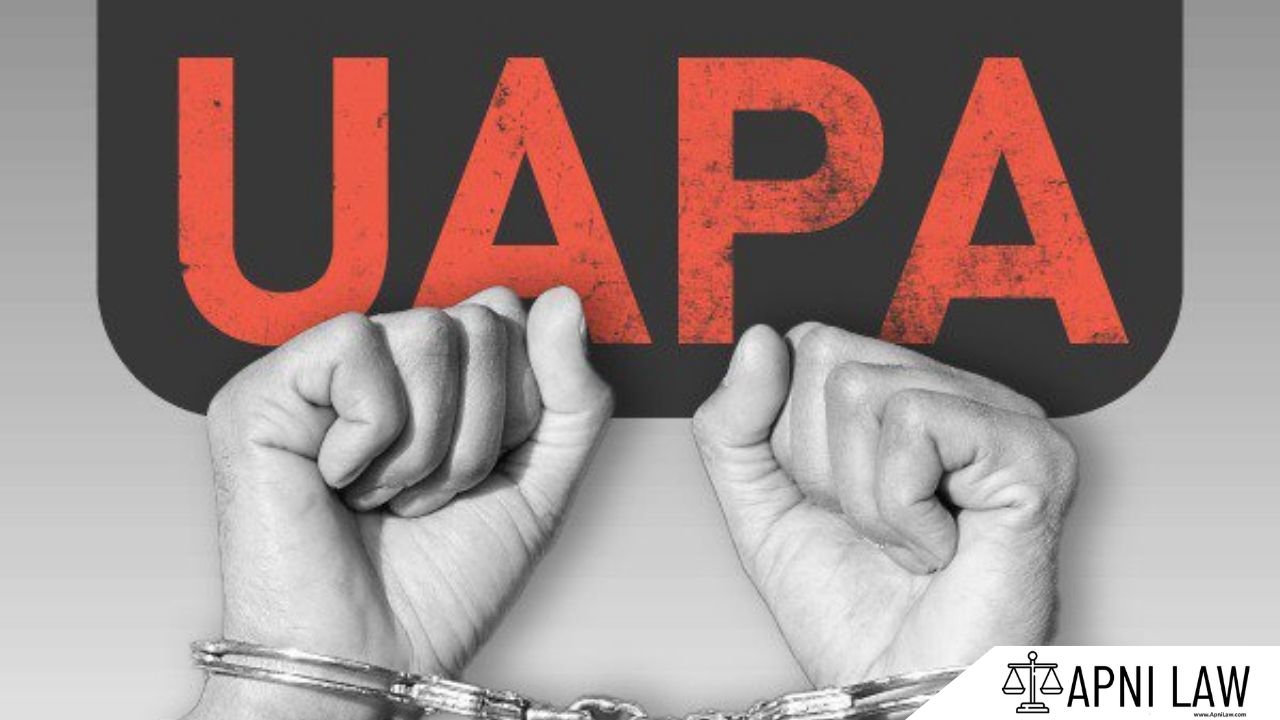Introduction
The Unlawful Activities (Prevention) Act, 1967 (UAPA) is India’s primary anti-terror law. The Act aims to prevent unlawful and terrorist activities that threaten the sovereignty and integrity of the country. It empowers the central government to declare individuals or organizations as terrorists or unlawful associations. UAPA provides strict provisions for detention, investigation, and prosecution of persons accused of terrorism-related offences. It overrides general criminal laws in granting bail and allows extended detention without charges in certain cases. The Act ensures national security while balancing civil liberties. Its scope covers both domestic and international terrorism, including offences like terror funding, recruitment, and conspiracies against India.
What Does The UAPA Act Talk About Bail?
Section 43D(5) of the Unlawful Activities (Prevention) Act, 1967 states that courts cannot grant bail to an accused under unless the Public Prosecutor gets a chance to be heard. Even then, the court must not release the person on bail or bond if it finds, after reviewing the case diary or chargesheet under Section 173 CrPC, that the allegations appear to be prima facie true. This provision overrides the regular bail rules in the Code of Criminal Procedure and ensures stricter conditions for bail in UAPA cases.
Case Example
The Supreme Court recently upheld a Delhi High Court judgment affirming that the “bail is the exception” principle strictly applies under Section 43D(5) UAPA. In May 2025, the SC restored bail for a man accused of supporting ISIS, emphasizing that because he “didn’t violate any bail condition,” he could not be kept in custody despite the stringent anti-terror framework. Meanwhile, the Madhya Pradesh High Court in May 2025 rejected bail for a Bhopal-based lawyer held under UAPA, noting that seized documents plausibly indicated involvement in activities threatening national unity, thereby satisfying the proviso that accusations be prima facie true. These rulings reaffirm that while Section 43D(5) imposes a high bar for bail, courts may still grant it when conditions are met or constitutional rights are endangered.
Conclusion
The Unlawful Activities (Prevention) Act plays a critical role in India’s fight against terrorism. Its stringent provisions, including Section 43D(5), aim to deter serious threats to public safety and national unity. While the law faces criticism for potential misuse, courts continue to balance its application with fundamental rights. UAPA remains essential for dealing with modern security challenges, including global terror networks and internal extremist groups. As threats evolve, the Act ensures that India’s legal system stays equipped to protect its sovereignty and maintain law and order.











